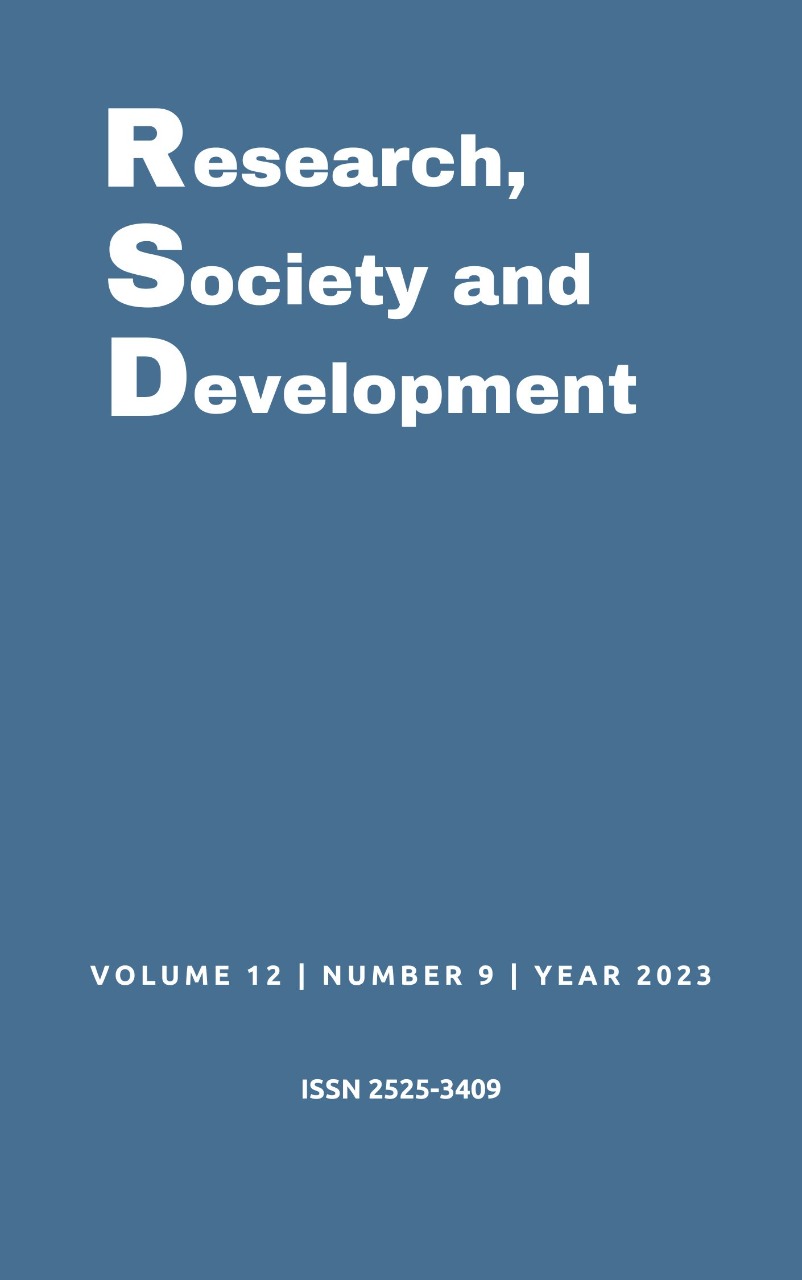Education in the teaching context of the Amazon scenario
DOI:
https://doi.org/10.33448/rsd-v12i9.43201Keywords:
Teaching, Special education, Inclusion.Abstract
This study addresses Inclusive Special Education, an educational modality that seeks the inclusion of students with special needs, preferably in regular education, from Early Childhood Education to Higher Education. The study also highlights the challenges faced by teachers in the inclusive classroom, highlighting the importance of new teaching approaches and a different perspective when working in this context. Brazilian legislation, such as the National Education Guidelines and Bases Law, has been crucial to advancing inclusive education. However, studies point to setbacks in previous years, but highlight the return of inclusion policies with the new government management in 2023. The objective of this study is to debate the education of deaf people and the inclusion of hearing people in the school context, with a focus on effective inclusion of Libras in public schools in Manaus. The research methodology involved a qualitative and bibliographic approach, including classroom observations. The data was collected from the Municipal Department of Education and Libras teachers. The research was conducted in the Municipality of Manaus, Amazonas, where the need for greater qualification of professionals in Libras was observed to guarantee the effective inclusion of deaf students. The research concludes that there are still challenges to be overcome in inclusive education in Manaus, especially in the training of professionals in Libras. The inclusion of hearing people in regular schools, with Libras teaching, is seen as a way of promoting full interaction between deaf and hearing students, contributing to a more fair and egalitarian society.
References
Adams, F. W., Faria, D. M., & Rodrigues, R. P. (2020). A relevância da formação continuada na perspectiva da educação especial para professores de Ciências. Research, society and development, 9(8), e182985430-e182985430.
Betim, A. C. & Papi, S. (2013). O papel do professor diante da inclusão de um aluno surdo. PARANÁ. Secretaria de Estado da Educação. Superintendência de Educação. Os Desafios da Escola Pública Paranaense na Perspectiva do Professor PDE.
Brasil, S. d. E. E. (1977). Educação Especial Língua Brasileira de Sinais (série Atualidades Pedagógicas, n. 4).
Brasil. (2002). Lei n. 10.436, de 24 de abril de 2002. Dispõe sobre a Língua Brasileira de Sinais – LIBRAS e dá outras providências. Diário Oficial [da] República Federativa do Brasil, Brasília, DF.
Brito, L. F. (2010). Por uma gramática de línguas de sinais. (2nd ed.). TB - Edições Tempo Brasileiro. https://bds.unb.br/handle/123456789/951.
Gauquelin, E. M. G. (2023). Dificuldades docentes para a inclusão escolar de alunos surdos no ensino médio da Escola Pública Estadual no Município de Macapá, Brasil. Rebena-Revista Brasileira de Ensino e Aprendizagem, 7, 153-161.
Gil, A. C. (2002). Como classificar as pesquisas. Como elaborar projetos de pesquisa, 4(1), 44-45. Editora Atlas, São Paulo.
IBGE. (2022) .Censo Demográfico. Características gerais da população, religião e pessoas com deficiência. Brasília.
Mendes, A. Q. S., Figueredo, F., & Ribeiro, A. C. (2015). Inclusão de alunos surdos na escola regular: aspectos linguísticos e pedagógicos. Revista de Iniciação Científica–RIC. Cairu, 2(02), 33-46.
Morais, A. S. D. S. (2023). A educação inclusiva em uma escola da rede municipal de Manaus: desafios e percepções na sala de aula. Retrieved from: http://riu.ufam.edu.br/handle/prefix/6854 .
Moreira, A. D. S. M., Novelo, D. C., Candido, L., Brunhoroto, S. F., Pacobello, L., & Jacomini, M. L. (2022). Educação especial e inclusão. Fundação de Ensino Octávio Bastos. Projetos Integrados (PI), Research Report. http://ibict.unifeob.edu.br:8080/jspui/handle/prefix/3678.
Moura, M. C. (2000). O surdo: caminhos para uma nova identidade. Revinter.
Neves, J. L. (1996). Pesquisa Qualitativa: Características, usos e possibilidades, Caderno de pesquisas em administração.
Nunes, S. D. S., Saia, A. L., Silva, L. J., & Mimessi, S. D. A. (2015). Surdez e educação: escolas inclusivas e/ou bilíngues? PsicologiaEscolar e Educacional, 19, 537-545.
Pires, E., Sanches, A., & Torres, W. (2011). Dificuldades dos portadores de necessidades especiais na inclusão educacional. Encontro das Licenciaturas da Uneal e Seminários do PIBID. Unitins.
Rocha, A. B. (2017). O papel do professor na educação inclusiva. Ensaios Pedagógicos, 7(2).
Sacks, O. (2010). Vendo vozes: uma viagem ao mundo dos surdos. Editora Companhia das Letras.
SEMED. Departamento de Ensino Fundamental. (2020). Setor de matrículas. Manaus.
Silva, V. C., Oliveira, K. S., Carneiro, F. S. V. & Amorim, C. M. F. G. (2019). O papel do Professor na Educação Inclusiva de Alunos Surdos no Ensino Médio. Reseach, Society and Development. 9 (1), e90911480. https://doi.org/10.33448/rsd-v9i1.1480.
Sousa, F. M. B. de ., Lustosa, F. G. ., Felipe, K. de F. ., & Silva, M. S. da . (2023). Políticas e práticas governamentais em defesa dos direitos educacionais das pessoas com deficiência – avanços e retrocessos ao longo dos séculos XX e XXI. Research, Society and Development, 12(2), e0512239444. https://doi.org/10.33448/rsd-v12i2.39444.
Downloads
Published
Issue
Section
License
Copyright (c) 2023 Ramiro Antônio de Aquino Santos

This work is licensed under a Creative Commons Attribution 4.0 International License.
Authors who publish with this journal agree to the following terms:
1) Authors retain copyright and grant the journal right of first publication with the work simultaneously licensed under a Creative Commons Attribution License that allows others to share the work with an acknowledgement of the work's authorship and initial publication in this journal.
2) Authors are able to enter into separate, additional contractual arrangements for the non-exclusive distribution of the journal's published version of the work (e.g., post it to an institutional repository or publish it in a book), with an acknowledgement of its initial publication in this journal.
3) Authors are permitted and encouraged to post their work online (e.g., in institutional repositories or on their website) prior to and during the submission process, as it can lead to productive exchanges, as well as earlier and greater citation of published work.


